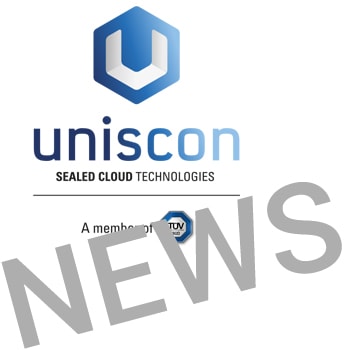
The DE-Mail project is about to end - an error analysis from a data protection perspective. DE-Mail is now facing the end with the withdrawal of Telekom.
The DE-Mail was an ambitious promise for Germany's digital future. It should send a strong signal and offer a reliable and, above all, secure alternative to traditional paper-based letters. Similar to a digital ID, it was born from the noble project to enable digital identification of the sender and to accelerate the legally binding exchange of official documents.
But DE-Mail could not meet the expectations placed on it and is now facing the end with the withdrawal of Telekom. But what are the reasons for the failure of the DE-Mail project?
When it comes to digitization, Germany is lagging behind
In Germany, the clocks of digitization run differently - namely often a little slower - than elsewhere. Not only when it comes to broadband expansion, we are well behind EU countries such as Romania and Hungary. We are also lagging significantly behind in this country when it comes to the digitization of official processes. In Estonia - the digital pioneer in Europe - practically all administrative procedures can be carried out from your home PC or smartphone. However, this requires established and reliable structures for digital data exchange. DE-Mail was conceived as an important building block for this purpose and was intended to implement the EU Services Directive, according to which electronic communication should be accepted as a binding medium by 2009.
But in addition to various stumbling blocks, such as running costs and the obligation to regularly check the separate mailbox, it was not least the concerns about data protection that have brought DE-Mail a slow descent into insignificance. Because the e-mails stored in the mailbox were archived there in unencrypted form - an untenable situation, especially for such a “key” project.
There are already tried and tested solutions for secure digital mail
DE-Mail may have failed because of its immature concept - but Germany depends on a well-thought-out successor for the digitization of its bureaucracy!
There are already various tried and tested solutions for the successful digitization of mail: Highly secure cloud services, confidential computing and sealed digital data rooms on European servers protect data exchange through encryption at all times - even during processing, not just during data transmission and storage .
Only a lockable mailbox will be able to gain the necessary acceptance from German users so that the next project does not fail again. The users' trust in the security of their correspondence is an essential prerequisite for a possible DE-Mail successor. Data protection must be the focus of any new planning.
Confidential computing and data protection through technology design
It is therefore advisable to all potential candidates who are eligible for a new edition of DE-Mail to reflect on the strengths of European data protection law. It is essential to avoid the impression that the available technologies have not been used to the best of our knowledge and belief.
Confidential Computing “Made in Europe” is already a reality in many companies. With Secure Content Collaboration - the secure exchange of confidential data and documents and protected digital collaboration - you rely on future-proof data storage and processing in the European cloud, which is based on the strict rules of the GDPR.
The German bureaucracy should take this as an example and design a secure successor for DE-Mail as quickly as possible. But this time please follow the principle of "data protection through technology design" - and do it correctly.
More at Sophos.com
About uniscon Uniscon GmbH is a member of the TÜV SÜD Group. As part of TÜV SÜD's digitization strategy, uniscon offers highly secure cloud applications and solutions for secure and legally compliant data traffic. TÜV SÜD is a leading global technical service company with over 150 years of industry-specific experience and today more than 24.000 employees at around 1000 locations in 54 countries. In this strong network, uniscon is able to reliably implement major international projects in the areas of IoT and Industry 4.0 with the Sealed Cloud and its products. Further information on the company and the solutions: www.uniscon.com
